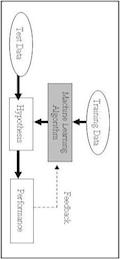Critical Machine Learning
Achim Koh, Masters of Arts in Liberal Studies
Faculty Advisor: Maura Smale
Project Website: Critical Machine Learning

Recent trends in computational technology included great increases in both computational power and the amount of available data across social fields. These changes, namely the rise of big data, are closely related to the automated application of statistical methods in order to detect patterns, predict future data and make decisions—the field of machine learning. The IT industry has been quick to apply machine learning to a vast range of products, from machine translation to self-driving cars. Moreover, other social areas are increasingly participating in the trend, including but not limited to education, justice and labor. The increasing influence of machine learning methods as algorithmic social mechanism calls for discussions about the technology’s implications, not only by field experts but also by members of other fields, which are affected by the technological change. Such broad discussions require both accessible technical knowledge and critical thinking.
There is a considerable amount of resources for learning the machine learning as a tool, including but not limited to offline bootcamps or MOOCs such as Coursera. There also exist resources that are less industry-targeted, such as our own GC Digital Research Institute and the Programming Historian online tutorial series, which provide workshops and tutorials for applications of computational methods in humanities research. Such technical resources are valuable to non-experts, especially since the increasingly high levels of abstraction involved in machine learning methods make it harder to understand the mechanisms of the technology without directly engaging it. On the other hand, interdisciplinary discussions that question biases in the algorithmic society, envision the future and contextualize the technological progress are also being done by researchers. Visible efforts include the Data & Society research institute and the AI Now symposium, just to quote some local examples that openly provide abundant research material. However, these resources—technical and critical—usually exist separately, which makes it difficult to navigate between the two types.
Critical Machine Learning (CML) attempts to bridge technical understanding and critical discussion; by doing so, it aims at lowering the barrier for researchers and educators to understand technical concepts and consider critical issues around machine learning. CML’s goal is to become a resource that encourages interdisciplinary thinking, and that researchers and educators can apply in their respective discipline. The project operates under the assumption that hands-on technical experience and critical thinking about technology complement each other, and that such an approach is applicable in multiple fields of research and education.
CML consists of two components. The first, a website, lists up carefully curated material for both technical understanding of and critical thinking about machine learning. The resources cover various machine learning methods and computational concepts, along with diverse social issues impacted by the technology. The website mainly serves as a hub pointing to other openly available resources. The second component is an offline workshop series that puts the research material into practice. While the online resource above covers different research areas and computational methods, the workshops will focus on a specific field and question that will be determined during the research process for the website.